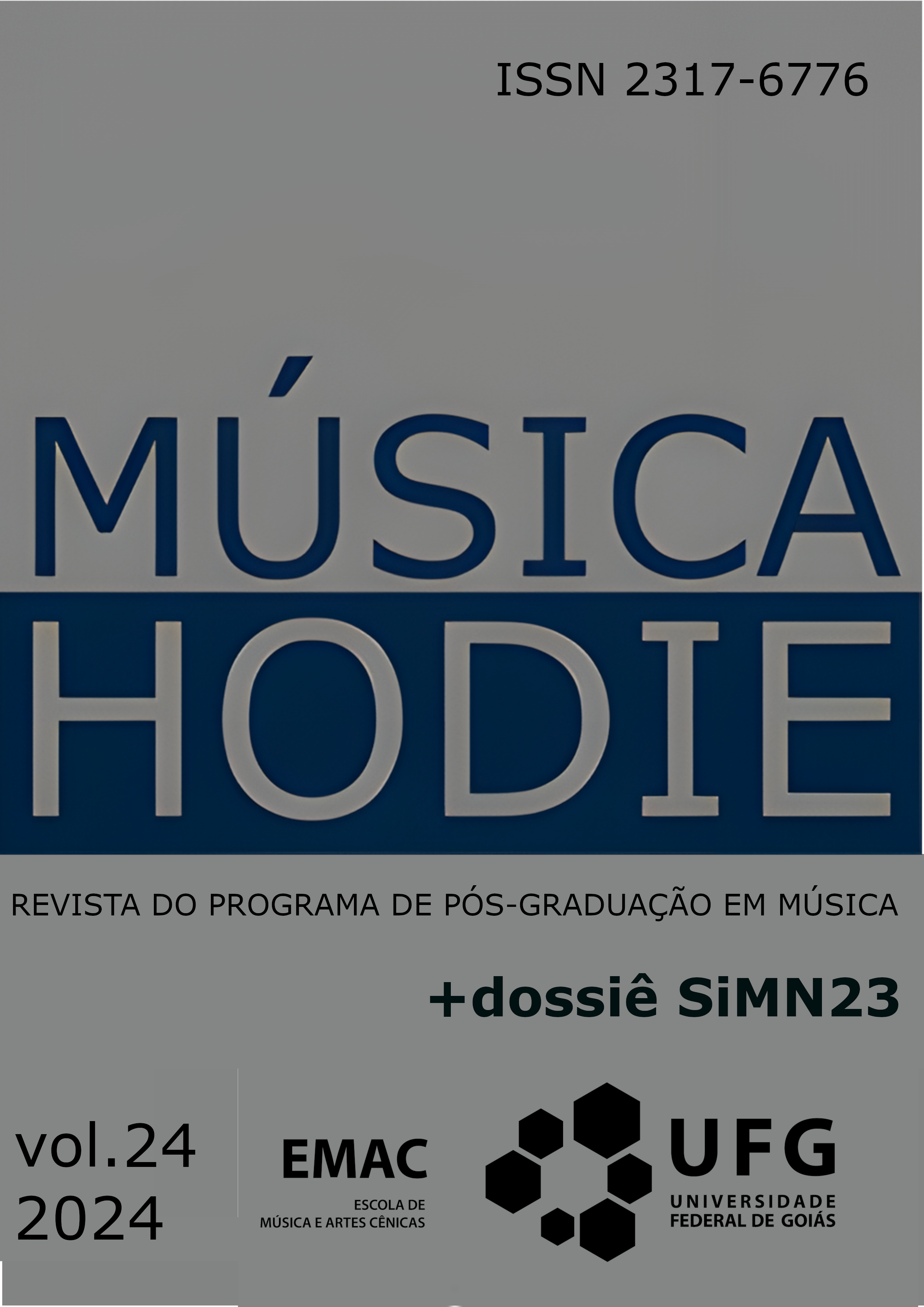The Change of Time Expression in 20th Century Music Creation and the System of Music Education
DOI:
https://doi.org/10.5216/mh.v24.80288Palavras-chave:
listeners’ perception, music order, rhythm, time concept, virtual audienceResumo
The purpose of this publication is to study the processes of comprehension in the world's society of the 20th-century academic tradition's works, where rhythm is the leading factor in the formation, fixation, and development of images, concepts, and plots. The study used practical (Internet monitoring) and theoretical (analysis, comparison, and synthesis) methods. As a result of studying the problem of rhythm in the music of the 20th-century composers, it was revealed that students were interested in this type of composition, where rhythm, being of key importance, appears in inextricable synthesis with intonation based on a centuries-old modal system and a variety of timbre coloring ("Bolero" by M. Ravel). A significant number of students recognize the crucial role of rhythm skills in musical composition. The most important aspects among them are concentration on a specific rhythmic sequence over an extended period (87%); mastery in manipulating the tempos of the composition (96%); constructing a cohesive concept based on prominent themes that symbolize various facets of imagery (83%); and flexibility in working with sound material (98%). The practical significance of the study is that it reveals the specifics of the modern listener’s perception of academic music of the 20th century, where rhythm plays a key role and allows composers to find ways to communicate with the audience. The prospects for research on this problem in the future are determined by the process of the emergence of new works, where the authors will interpret the rhythm uniquely and multimedia will serve as a platform for their dissemination.
Downloads
Downloads
Publicado
Versões
- 2025-01-06 (2)
- 2024-11-29 (1)















